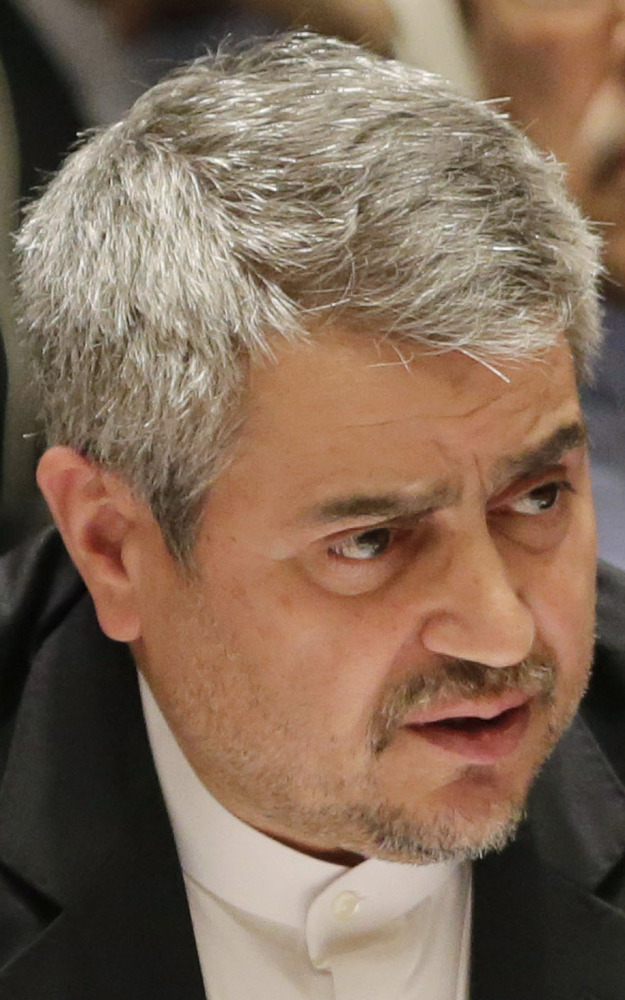UNITED NATIONS — The U.N. Security Council on Monday unanimously endorsed the landmark deal to rein in Iran’s nuclear program and authorized measures leading to the end of U.N. sanctions, but also approved a provision that would automatically reinstate the harsh measures if Tehran reneges on its promises.
European Union foreign ministers meeting in Brussels immediately followed suit, endorsing the agreement between Iran and six major powers and taking the first step to lift EU sanctions.
President Obama told reporters he hopes the Republican-controlled Congress, where there is strong opposition to the deal, will pay attention to the “broad international consensus,” stressing that the deal is “by far our strongest approach to ensuring that Iran does not get a nuclear weapon.”
But House Speaker John Boehner accused Obama of “ignoring the concerns of the American people” by allowing “such a consequential vote” to go ahead in the U.N. just 24 hours after submitting the agreement to Congress, which has 60 days to consider it. “This is a bad start for a bad deal,” he said.
While sharp differences remain between the United States and Iran, ambassadors from both countries called the agreement an important achievement for diplomacy.
Under the agreement, Iran’s nuclear program will be curbed for a decade in exchange for potentially hundreds of billions of dollars’ worth of relief from international sanctions. Many key penalties on the Iranian economy, such as those related to the energy and financial sectors, could be lifted by the end of the year.
Iran insists its nuclear program is purely peaceful, aimed at producing nuclear energy and medical isotopes, but the United States and its Western allies believe Tehran’s real goal is to build atomic weapons. Iran’s U.N. Ambassador Gholamali Khoshroo reiterated that Iran’s Supreme Leader Ayatollah Ali Khamenei has declared nuclear weapons “Haram,” which means forbidden by the Muslim faith in Arabic.
Khoshroo said Iran promises to be “resolute in fulfilling its obligations” and expects all other parties to the agreement to meet their commitments. This is the only way diplomacy can “prevail over conflict and war in a world that is replete with violence, suffering and oppression,” he said.
The Iranian ambassador said the agreement “provides a solid foundation for further and more effective diplomatic interaction.”
Send questions/comments to the editors.



Success. Please wait for the page to reload. If the page does not reload within 5 seconds, please refresh the page.
Enter your email and password to access comments.
Hi, to comment on stories you must . This profile is in addition to your subscription and website login.
Already have a commenting profile? .
Invalid username/password.
Please check your email to confirm and complete your registration.
Only subscribers are eligible to post comments. Please subscribe or login first for digital access. Here’s why.
Use the form below to reset your password. When you've submitted your account email, we will send an email with a reset code.